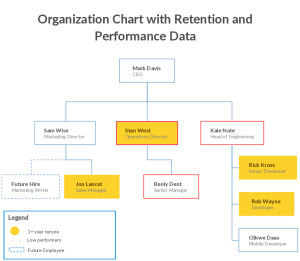Online customers have loftier expectations when shopping compared to a decade ago, thanks in part to services like Amazon Prime that make purchases and returns easy. Purchasing power is also aided by customer reviews, which have credibility now with labels like “Verified Purchase” presented alongside the reviewer’s name.
Overall, the act of purchasing anything online in 2016 has become very transparent, with customers yearning for a service that’s worry-free throughout every step: from finding the product and putting it into the shopping cart to ensuring that, if something goes awry, returns are painless. Online retailers are undoubtedly being held to a higher standard than ever, which is something that should continue to persist in 2017 and beyond.
Efficiency, ease and transparency will continue to be valued highly in 2017, taking the form of some of the following e-commerce delivery trends.
Free Shipping
The primary cost-related difference between shopping online and in-person is the shipping cost. In fact, when AlixPartners conducted a survey asking customers to name the top reasons why they did not order from an online retailer, the top two responses by a large margin (10%+) were the need to touch the item before purchasing and the cost of delivery being too high. The latter highlights why free shipping is in massive demand among online customers, who are likely to opt for in-store retail as an alternative if shipping costs are exorbitant.
Online retailers like Amazon Prime and Target’s online store have successfully evaded delivery cost concerns by providing free shipping while simultaneously incentivizing customers to purchase more. Amazon, for example, offers free shipping on any orders over $ 49 for regular customers. Target also offers free shipping for orders of $ 25 or more. Merely offering the free shipping option will incentivize users to proceed with their purchase and meet the minimum.
Membership Perks
Many online retailers have also found great success and customer retention with membership opportunities. Perhaps the most common in the online retail sphere is Amazon Prime, where any customer can join for $ 99 per year and enjoy benefits like free two-day shipping (with no minimum order cost) and free streaming services for both music and movies. They also provide unlimited photo storage and grocery delivery options.
It highlights another trend: membership services for online retailers providing no-minimum free shipping, in addition to other entertainment-related perks.
Target has a similar program where they offer customers free shipping with no minimum order, as long as they pay with a REDcard™ (Target Credit Card™, Target Debit Card™ or Target™ MasterCard®).
In showcasing one of the most evident e-commerce fulfillment trends, Amazon and Target are able to accumulate a wide variety of memberships, ensuring customer retention on a yearly basis and eliminating one of the biggest reasons why customers avoid online shopping or abandon their carts.
Worthwhile Upgrades
The reality is that not every business is large enough, like Amazon and Target, to eat the shipping costs themselves. Providing free shipping is possible for some businesses — especially those that implement programs like Amazon Prime that generate profits to help pay for shipping on the company’s side — but it’s not a reality for many.
The viable alternative to this, as well as a rising e-commerce delivery trend, is the availability of upgrades for either the product or shipping method. Some retailers are offering upgrading from standard five- to eight-day shipping to overnight or two-day shipping when customers meet a minimum delivery order or accumulate enough credits/points in a particular membership program, accumulated by making ongoing purchases.
Since the shipping carrier will profit routinely from an ecommerce business, it’s also worthwhile to negotiate with them. Threatening to use a different shipping carrier if costs remain high may get the job done.
Providing faster delivery or product upgrades for loyal customers — or new ones as well, if costs allow — will make purchasing a lot more desirable on any platform for online customers. It makes for a very customer-accommodating trend.
Same-Day Pick-Up
Online-only retailers may not have this option, but businesses with both a physical and online presence can benefit immensely by providing same-day pick-up at their retail locations. This is very appealing for customers, as they don’t have to wait or pay shipping fees. On the business’ side, they typically won’t have to pay much at all for shipping, either.
It’s a win-win situation that gets the product in the customer’s hands cheaply and efficiently. Plus, it counters the biggest concern among prospective online shoppers: that they need to touch the item before purchasing it.
A Multitude of Options
Ideally, an online retailer would offer customers every one of the aforementioned options for shipping: same-day delivery, two-day delivery, free standard delivery and in-store pickup. The more options there are for e-commerce fulfillment, the likelier it is that the customer will be satisfied and become a regular shopper.
Online customers have a multitude of competing retailers to choose from when purchasing a product, so by offering a variety of options and shipping promotions, you can successfully stand apart from the niche-relevant crowd of competition.
Extensive Analytics on Best-Way Shipping
Providing a variety of shipping options, some of them free, has obvious appeal, though it’s not an easy accomplishment with the current state of shipping costs. Major carriers increase their service rates and surcharges by at least 4.9% every year, something businesses have to deal with annually.
“With cart abandon rates from unexpected shipping costs at a staggering 28%, there’s an industry-wide pressure to offer free shipping through expedited methods,” explains Tom Krueger, President of NFSRV. “As the prices skyrocket, retailers feel the crunch of their margins and smaller companies below certain volume thresholds struggle to negotiate rate savings.”
As a result, many online retailers are using fulfillment centers to aid in cutting costs. These locations “can perform detailed analysis on the destination, contents, speed, package weight and dimensions to determine the best shipping method for each order,” says Krueger. When FedEx, USPS and UPS announce their 2017 rates, a trend that would not be surprising to see is a new reliance on fulfillment centers keen on third-party logistics.
Mobile Connectivity Will Rise
It’s hard to imagine mobile technology getting even bigger in popularity, as over 68% of American adults own a smartphone. The reality, though, is that actual user engagement on mobile technology is bound to increase as businesses focus more on mobile engagement in regard to product inventory. Gartner Digital Marketing Research and Insights predicts that the mobile behavior of shoppers will increase e-commerce-driven mobile revenue by a minimum of 50% by the year 2017, with over $ 2 billion in sales being accounted for by mobile digital assistants.
Mobile digital assistant technologies are better known by the names of Siri, Cortana and Google Now, which are becoming increasingly active in connecting to online retailers and making purchasing and delivery easier than ever. In fact, Apple’s latest iOS 10 update includes a variety of retailer syncs, so you can now tell Siri to schedule an Uber ride or use a specific app. This behavior is bound to result in more connectivity in 2017 between digital assistant technologies and e-commerce purchasing and delivery.
Overall, e-commerce is predicted to grow by a whopping 45% in 2016, with 2017 perhaps seeing an even bigger jump. With that in mind, it’s very exciting to think about the trends above and how they will become commonplace in the purchasing and delivery experiences for online customers. They’re all fulfillment trends that large and small businesses alike are paying close attention to.
Digital & Social Articles on Business 2 Community(45)
Report Post






